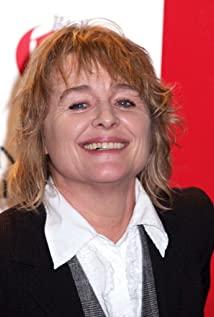After watching the movie "Crack" for the second time after many years, in order to understand the story in a deeper and more comprehensive way, and to complete the plots that were not clearly explained or missing in the movie, I read the original novel of the same name for the first time. I have to say that the adaptation of the storyline of this movie is very, very successful. It is a rare work of the original novel and the adapted movie that I like very much.
This article compares and analyzes the similarities and differences between the original novel and the film adaptation of the same name in terms of background, character relationships and important storylines. It aims to provide a reference for fans who have not read the original, and the same purpose as I read the original - to make everyone more Understand the story three-dimensionally and completely.
The first is the difference in the background of the times.
The boarding school in the original book is located in the author's country of nationality - South Africa. Different from the church girls' boarding school in the British countryside that took in some girls who could not go home, the girls' school in the original book is just a normal school located in the hot savannah of South Africa. There are daughters of rich peasants in the school (who donated a sum of money to the swimming team) and daughters of nearby farmers. They are free to go home for vacation and spring break, and compete normally with other school swim teams. Compared with the gloomy and closed film, this place is more warm and open. The factors that caused the tragedy of F also basically got rid of the influence of the occluded environment in the movie, and were more expressed in the emotional relationship of the characters.
The biggest difference is Fiamma's background. In the movie, the Spanish aristocratic princess who was abandoned by her family after falling in love with Marxists. In the original book, she was brought to South Africa to go to school because her father invested in masonry in South Africa. However, because her father was dying of an illness, the Italian aristocrat lost her support. Princess. Not only was F not abandoned, but under G's inquiry, F also described at length the big house on the outskirts of Milan and the happy life of his father and old servant, as well as the land and real estate he would inherit. This also shows that F's grief and incompatibility at school, in addition to some family factors, comes from the exclusionary attitude of classmates and G's harassment. (As an aside, the death of F at the end and the long illness of F’s father, who has only one orphan, made me read a little bit of Gothic atmosphere)
The movie changed F's birthplace from Italy to Spain. I don't think there is any deeper consideration. It may just be that when choosing an actor, I found that Maria is particularly in line with the original F's temperament, and because she is a Spanish actor, I changed it along the way. . The reason for moving the story from South Africa to the UK is even simpler, because this is a British film.
The second is the difference between characters.
Precisely because this is a movie made by a British team, compared to Fiamma who is almost the only protagonist in the original book, the movie greatly enhances the depth and three-dimensionality of the character of Miss G played by Eva green. Added more scenes. Actor Maria, who plays F, has been squeezed three times in the Cast.
In the GDF love triangle, the movie basically copied the original book, but there are some differences.
In the original book, D's love for G is no longer a one-on-one erotic infatuation, but a mixture of the following emotions: G chose them as an elite swimming team to distinguish other ordinary female students; led them to win many competitions and have The honor of the young girls; the yearning for the adult female ketone body; the special material and emotional preferential treatment for the swimming team. As the captain of the swimming team, D regards defending G's preferential treatment for the girls of the swimming team as her responsibility, which is why she rebounded more after the appearance of the intruder F. Because in the later period, G's love was biased towards F alone, and left the scolding and abuse to other girls. Compared with the admiration and following in the movie, the girls in the original book are more of a contending nature for G.
In the original book, G's fascination with F is more than that of the movie. The love-hate emotions in the movie are left with the ultimate infatuation and love in the original book, and it can't be sluggish, just like any desperate love in the world. G, who used to be in high spirits, turned pale, had dark circles under his eyes, and could not remember the names of students. He spent a lot of time every day peeping and following F, creating various opportunities to be alone with F, just to see her a few more times (let me Think of Soulbreak Venice). As for the reason why G is obsessed with F, there is no definite answer in the original book, but it is opened to the readers to think about through the questions of the girls in the swimming team. I personally prefer F's beautiful appearance and elegant temperament (because in the original book G came to Africa from the UK alone, and has also been to the United States, it should not be simply because of F's rich experience), and D's conclusion - F is rich Princess, and G doesn't have that much money (she steals sugar buns at the cafe), yeah who doesn't love beautiful and rich people.
F's feelings for G are also simpler in the original - disgust at G's endless (sexual) harassment, and the helplessness of the swim team girl forcing her to be nice to G. The movie adds a new plot of G's fictional adventures stealing postcards and causing F's disgust, but this is not the main point of contradiction between G and F in the original book.
In general, the movie supplements G's character image, adding that G's fictional experience was dismantled by F, which further highlights the profound theme of G living in a fantasy and relying on fictional images to deceive simple schoolgirls. This is undoubtedly an important supplement and expansion to the theme of love and jealousy in the original work. At the same time, it also replaces the absolute protagonist of F in the original work with G, so that Eva's participation will not violate the harmony.
In the film, in addition to D's mission of maintaining G's preferential treatment of the swimming team as the captain, the plot of D's desire to gain G's sole favor is also added, which facilitates the film and television works to concentrate the emotions that were originally scattered on each girl on one person. Conducive to the audience's memory of the character (in the original book, it is mentioned that the person who has a little erotic fantasy about G's body touch is another girl named Meg).
Finally, there is a difference in the storyline.
Let's talk about the opening storyline of the original book first. This is also the most heart-wrenching place I read after reading the original book.
In the original book, Dean Niven, who was already old, sent a letter asking for donations to the swimming team, which represented the school's elite at the time, because the developer was going to demolish the cemetery near the school and turn out the bones. This letter reunites most of the swim team's classmates who have reached middle age many years later. At first I thought it was a warm reunion and a reminiscence of the past, and it wasn't until the penultimate chapter of the original book that I found out why they worked so hard to come back and signed the check without hesitation - after humiliating Fiamma to death, they hid the body in Next to the bones in Earl George's grave, F has closed the case as missing. At the end of the original book, the middle-aged women revisited the tomb of Earl George, who once hid F's body, and glanced at F's bones, as well as her streamers and lace-up shoes that had not yet rotted.
That's right, the death of F in the original book was not caused by G, at least not directly, but was completely caused by the abuse of several girls (including inserting TT into the lower body). A forced reunion comes after decades of silence in order to cover up the crime after a group crime and discovering that the past crime is about to be exposed.
The whole story has such a dark reason at the beginning and the end, and the overall tone of the original book also forms a classic dark closed loop in literature: no one really did anything wrong, but the ending is very tragic.
As mentioned in the previous article, the original book did not focus too much on the contradiction of G’s lies and F’s debunking, so the main contradiction in the original book is this path: G chooses elite girls to join the swimming team⟶ Girls feel honored to swim for G⟶ F Graceful and beautiful with excellent swimming skills ⟶ G is desperately in love with his daughter F and pursues a passionate pursuit and obvious preference ⟶ F is dismissive and indifferent to G ⟶ G can't get F makes him sluggish and takes anger at others Girls ⟶ Swimming team no longer has good results⟶ Other girls are jealous and resentful of F ⟶ Girls force F to be nice to G ⟶ G has sex with F ⟶ Girls' jealousy makes them insult F and because of F's asthma And death is in the cemetery.
In addition to the problems mentioned above in the character relationship section, the movie and the original have different treatment of what happened when G and F were alone on the eve of St. Agnes. In the movie, it is clear that F was sexually assaulted when he was drunk, and the original words of F's answer in the girl's questioning in the original book were "I did what you asked me to do". Not long ago, the swim team girl suggested that F should sacrifice herself in exchange for G's happiness, and then help the swimming team restore its former glory.
That is to say, F, for the sake of the collective that night, even if it was the collective that had been mocking and bullying her, she acquiesced or endured G's sexual behavior towards her. Unexpectedly, her acquiescence completely awakened the fire of jealousy in the girls' hearts, and her life ended in the uninhabited Xiaohe case in the group fight.
If the adaptation of D leaving school at the end of the movie is the sublimation of the whole movie, it symbolizes the courage and future that the girls finally have. Then, at the end of the original book, it is stated that F is only missing, and the shocking passage of the girls is written in the penultimate chapter, which is complete darkness and suffocation.
There is nothing wrong with crazy love and infatuation, and the irresistible following seems to be a human instinct. There is nothing wrong with nostalgia for past honors, nor is there wrong with resentment against those who caused honor and favor to disappear.
Could it be wrong really is the line adapted from the movie - you are too perfect to belong to this world.
View more about Cracks reviews











